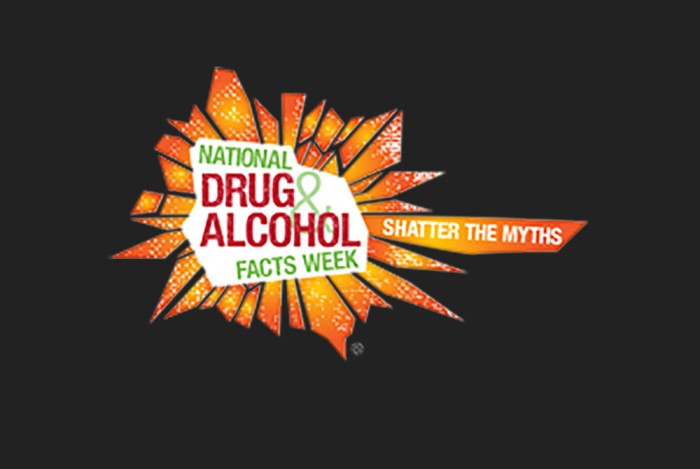Education
Final Day to Submit Proposals for RCPA’s 2022 Annual Conference!
The 2022 RCPA Conference, Together, will be held October 11–14 at the Hershey Lodge as a premier statewide event. The Conference Committee is seeking workshop proposals in every area for possible inclusion. The deadline for submissions is Monday, March 14 at 5:00 pm. Encouraged presentations are those that assist providers in developing and maintaining high-quality, stable, and effective treatments, services, and agencies in an industry where change is constant. The committee looks for presentations that:
- Highlight new policy, research, and treatment initiatives, such as telehealth innovations;
- Provide specific skills and information related to individual and organizational leadership development and enhancement;
- Address system changes that affect business practices, including value-based purchasing and alternative payment models;
- Provide guidance on recruiting and developing a committed workforce;
- Offer concrete skills and tools to operate more efficient, effective agencies; and
- Inspire ideas for organizations to work Together.
Workshop ideas for 2022 include:
- Workforce shortage solutions;
- The changing health care landscape, including telehealth changes;
- Executive leadership;
- Integrated care strategies for implementation and reimbursement;
- Managed care models for people with intellectual/developmental disabilities, including other state experiences;
- Advanced ethics topics;
- Acquisitions/mergers and consolidations;
- Value-based purchasing and alternative payment options; and
- Employing people with disabilities.
The committee welcomes any proposal that addresses these and other topics essential to rehabilitation, mental health, substance use, children’s, aging, physical disabilities, and intellectual/developmental disabilities & autism. Members are encouraged to consider submitting and to forward this opportunity to those who are exceptionally good speakers and have state-of-the-art information to share.
The Call for Proposals (featuring a complete listing of focus tracks) and accompanying Guidelines for Developing Educational Objectives outline requirements for submissions. Please send RCPA your proposal by Monday, March 14 at 5:00 pm. Proposals must be submitted electronically on the form provided; confirmation of receipt will be sent. Proposals submitted after the deadline will not be considered.
If the proposal is accepted, individuals must be prepared to present on any day of the conference. Workshops are 90 or 180 minutes in length. At the time of acceptance, presenters will be required to confirm the ability to submit workshop handouts electronically four weeks prior to the conference. Individuals unable to meet this expectation should not submit proposals for consideration.
Individuals are welcome to submit multiple proposals, and we encourage members to share this information with speakers and presenters who they believe would be a good fit for the conference. Notification of inclusion will be made via email by May 13, 2022. Questions may be directed to Sarah Eyster or Carol Ferenz, Conference Coordinators.
We look forward to coming together again this October!
Adolescent Trauma Training: Strategies to Support Youth and Families Navigating a “New Normal”
One Week Left to Submit Proposals for RCPA’s 2022 Annual Conference!
The 2022 RCPA Conference, Together, will be held October 11–14 at the Hershey Lodge as a premier statewide event. The Conference Committee is seeking workshop proposals in every area for possible inclusion. The deadline for submissions is Monday, March 14 at 5:00 pm. Encouraged presentations are those that assist providers in developing and maintaining high-quality, stable, and effective treatments, services, and agencies in an industry where change is constant. The committee looks for presentations that:
- Highlight new policy, research, and treatment initiatives, such as telehealth innovations;
- Provide specific skills and information related to individual and organizational leadership development and enhancement;
- Address system changes that affect business practices, including value-based purchasing and alternative payment models;
- Provide guidance on recruiting and developing a committed workforce;
- Offer concrete skills and tools to operate more efficient, effective agencies; and
- Inspire ideas for organizations to work Together.
Workshop ideas for 2022 include:
- Workforce shortage solutions;
- The changing health care landscape, including telehealth changes;
- Executive leadership;
- Integrated care strategies for implementation and reimbursement;
- Managed care models for people with intellectual/developmental disabilities, including other state experiences;
- Advanced ethics topics;
- Acquisitions/mergers and consolidations;
- Value-based purchasing and alternative payment options; and
- Employing people with disabilities.
The committee welcomes any proposal that addresses these and other topics essential to rehabilitation, mental health, substance use, children’s, aging, physical disabilities, and intellectual/developmental disabilities & autism. Members are encouraged to consider submitting and to forward this opportunity to those who are exceptionally good speakers and have state-of-the-art information to share.
The Call for Proposals (featuring a complete listing of focus tracks) and accompanying Guidelines for Developing Educational Objectives outline requirements for submissions. Please send RCPA your proposal by Monday, March 14 at 5:00 pm. Proposals must be submitted electronically on the form provided; confirmation of receipt will be sent. Proposals submitted after the deadline will not be considered.
If the proposal is accepted, individuals must be prepared to present on any day of the conference. Workshops are 90 or 180 minutes in length. At the time of acceptance, presenters will be required to confirm the ability to submit workshop handouts electronically four weeks prior to the conference. Individuals unable to meet this expectation should not submit proposals for consideration.
Individuals are welcome to submit multiple proposals, and we encourage members to share this information with speakers and presenters who they believe would be a good fit for the conference. Notification of inclusion will be made via email by May 13, 2022. Questions may be directed to Sarah Eyster or Carol Ferenz, Conference Coordinators.
We look forward to coming together again this October!
Reminder: RCPA Call for Proposals for the 2022 Annual Conference
The 2022 RCPA Conference, Together, will be held October 11–14 at the Hershey Lodge as a premier statewide event. The Conference Committee is seeking workshop proposals in every area for possible inclusion. Encouraged presentations are those that assist providers in developing and maintaining high-quality, stable, and effective treatments, services, and agencies in an industry where change is constant. The committee looks for presentations that:
- Highlight new policy, research, and treatment initiatives, such as telehealth innovations;
- Provide specific skills and information related to individual and organizational leadership development and enhancement;
- Address system changes that affect business practices, including value-based purchasing and alternative payment models;
- Provide guidance on recruiting and developing a committed workforce;
- Offer concrete skills and tools to operate more efficient, effective agencies; and
- Inspire ideas for organizations to work Together.
Workshop ideas for 2022 include:
- Workforce shortage solutions;
- The changing health care landscape, including telehealth changes;
- Executive leadership;
- Integrated care strategies for implementation and reimbursement;
- Managed care models for people with intellectual/developmental disabilities, including other state experiences;
- Advanced ethics topics;
- Acquisitions/mergers and consolidations;
- Value-based purchasing and alternative payment options; and
- Employing people with disabilities.
The committee welcomes any proposal that addresses these and other topics essential to rehabilitation, mental health, substance use, children’s, aging, physical disabilities, and intellectual/developmental disabilities & autism. Members are encouraged to consider submitting and to forward this opportunity to those who are exceptionally good speakers and have state-of-the-art information to share.
The Call for Proposals (featuring a complete listing of focus tracks) and accompanying Guidelines for Developing Educational Objectives outline requirements for submissions. Proposals must be submitted electronically on the form provided; confirmation of receipt will be sent. Proposals submitted after the deadline will not be considered.
If the proposal is accepted, individuals must be prepared to present on any day of the conference. Workshops are 90 or 180 minutes in length. At the time of acceptance, presenters will be required to confirm the ability to submit workshop handouts electronically four weeks prior to the conference. Individuals unable to meet this expectation should not submit proposals for consideration.
Individuals are welcome to submit multiple proposals. Notification of inclusion will be made via email by May 13, 2022. Questions may be directed to Sarah Eyster or Carol Ferenz, Conference Coordinators.
We look forward to coming together again this October!
Staff Diversity Can Help Students of Color
February 14 Marks Alzheimer’s Disease and Dementia Staff Education Week!
Diabetes in the Individuals With IDD Part 2 Webinar — February 22, 2022
Tuesday, February 22, 2022
1:00 pm CST | 2:00 pm EST
Complimentary 1.0 CEs — Nurses & QIDPs
Register here.
Presenter: Nanette Wrobel, RPh
Learning Objectives:
1. Describe the various complications affecting many aspects of the body secondary to the diagnosis of Diabetes Mellitus.
2. Identify those individuals most at risk for the development of complications of diabetes.
3. Discuss the treatment algorithm for the ongoing treatment of cardiovascular disease in the individual with diabetes.
For registration questions or more information, contact Tarrytown Expocare via email.
About Tarrytown Expocare Pharmacy
Founded in 2007, Tarrytown Expocare Pharmacy is the fastest growing Long Term Care cycle-fill pharmacy in America 100% dedicated to servicing individuals with intellectual and developmental disabilities (IDD). This is accomplished by a talented team of over 250 dedicated associates operating from pharmacy locations in Texas, Louisiana, Illinois, South Carolina, Georgia, and New Jersey. We are Licensed in over 40 states and servicing 17,000 individuals across over 500 distinct locations nationwide. For additional information contact Marc Altholz or call 512-566-3525.
DDAP Adds Third Option to List of Approved ASAM Criteria Education
The Pennsylvania Department of Drug and Alcohol Programs (DDAP) has added a third option to its list of approved ASAM Criteria education.
- The ASAM Criteria New Training Announcement 2022 details course content and access instructions to this online course from ASAM.
- The ASAM Criteria Training Options 2022 provides a list of all DDAP-approved education on the ASAM Criteria.
For more information on ASAM, visit DDAP’s website.
Black History Month 2022: Black Health and Wellness
When Carter G. Woodson established “Negro History Week” in 1926, he realized the importance of providing a theme to focus the attention of the public. The intention has never been to dictate or limit the exploration of the Black experience, but to bring to the public’s attention important developments that merit emphasis.
For those interested in the study of identity and ideology, an exploration of the Association for the Study of African American Life and History’s (ASALH) Black History themes is itself instructive. Over the years, the themes reflect changes in how people of African descent in the United States have viewed themselves, the influence of social movements on racial ideologies, and the aspirations of the Black community.
The changes notwithstanding, the list reveals an overarching continuity to exploring historical issues of importance to people of African descent and race relations in America.*
*excerpts taken from ASALH web page on Black History Themes.
Further your education on Black Health and Wellness with these resources:















